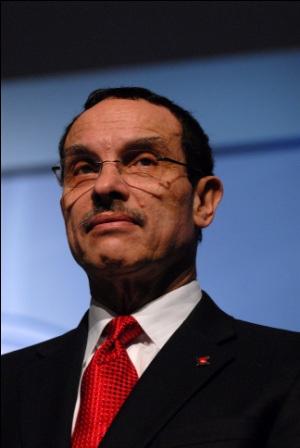Post Poll Looks Good for Gray, More or Less
By • February 27, 2014 0 702

Sometimes, it seems almost too early to be talking about the 2014 Democratic mayoral primary campaign. At other times, it seems almost too late.
It’s too early because so far at least, the race is not yet on a majority of voters’ radars, even though it’s coming up very fast in the rear-view mirror, with the election slated for April 1. On the other hand, it seems almost way late in the game because it’s, well, slated for April 1.
If the recently published Washington Post poll on the race is any indication, a big portion of voters has not made up its mind. So far, early indications look good for Mayor Vincent Gray in relation to his rivals, but not so good in the mind of many who still have doubts about his trustworthiness and honesty.
Meanwhile, the race remains murky and unsettled, almost as much as Gray’s own situation — vis a vis the federal investigation into his 2010 campaign’s finances. Several of his campaign aides have been indicted, and this investigation is not closed and could still wreak havoc.
The poll is not good news for Gray’s Democratic rivals, no matter how much they slice it and dice it. The enthusiasm for long-time—some longer than others—District Council members running for mayor has failed to gain any sort of traction that might indicate they are serious threats at least at this time. Polls, as one pollster told me long ago, are pictures and thumbnails of a window in time, not predictors that you can bet the farm—or your minimum-wage check—on.
The poll asked the question: “If the Democratic primary election for mayor of the District of Columbia were held today, for whom would you vote?”
Of those polled, 24 percent picked incumbent Mayor Vincent Gray. Doesn’t look like much, but it’s a little more than double that of the three council candidates Ward Four Council member Muriel Bowser (12 percent), Ward 2 council member Jack Evans (11 percent), slightly more than Ward 6 Council member Tommy Wells (also at 11 percent). Vincent Orange, an at-large council member, trails in single digits at 9 percent, and restaurant owner Andy Shallal got 5 percent. Rita Lewis and Christian Carter trailed far behind at 1 percent.
This is not good news for the trailing candidates, but it’s no cakewalk for Gray, either. The second big number in that particular part of the poll is the number of undecideds; it is almost as large as the vote for Gray.
Still, the showing of the council members doesn’t bode well. Less than two and a half months remain—75 days—for one or more of them to make a move, figure out what they’re not doing right, correct it and hope for the best.
Gray’s situation is a dilemma because of another part of the poll which measured the effect of the investigation into the 2010 campaign’s finances. Overall, 43 percent of those polled said it would be a major factor in their vote for a candidate, which is a significant figure. More importantly and more personally, 54 percent of those polled, when asked if the mayor was trustworthy or honest, said no.
That means that the investigation—which still holds the possibility of more indictments simply because it’s still ongoing—is a significant factor in the campaign for everyone, including the public at large.
On the other hand, Gray is getting lots of credit for doing a good job, especially in such areas as attracting new business, reducing crime, improving city services and creating more jobs. The only real area of concern throughout the city is education, where the margin is 38 to 34.
Gray is running for re-election as mayor of a city which has changed dramatically over the past decade, and especially during his years as mayor. Gray ran and won on a theme of “One City,” a slogan which he’s still using, although its meaning may be changing. Initially, it was meant to propel the idea of bring the city’s different areas together—i.e., bridging the gap between poor and rich, black and white. These days, one city, with that city growing and changing demographically with each day, seems more like a drive to homogeneity—and that is not the same thing.
These days, Gray is still shaking off questions about the campaign, although he’s delivered apologies on a radio show, a TV interview and during his campaign kickoff speech last week. The questions, it is safe to say, will continue to come. Just the other day Gray dismissed a question from a local television reporter asking him if he thought he was trustworthy and honest. Questions—maybe not that one, but similar ones—will continue. It’s one thing to insist that “I didn’t do anything.” That is not the same as not knowing anything.
Even if Gray wins the Democratic primary for mayor, he won’t be home free. An iffy poll result, one way or the other, is hardly a sure thing at this point. If at-large councilman David Catania does indeed run in the general election as he said he would if Gray won the primary, then there’s a spirited election ahead for him. Winning a one-on-one in November promises to be a tough task .

